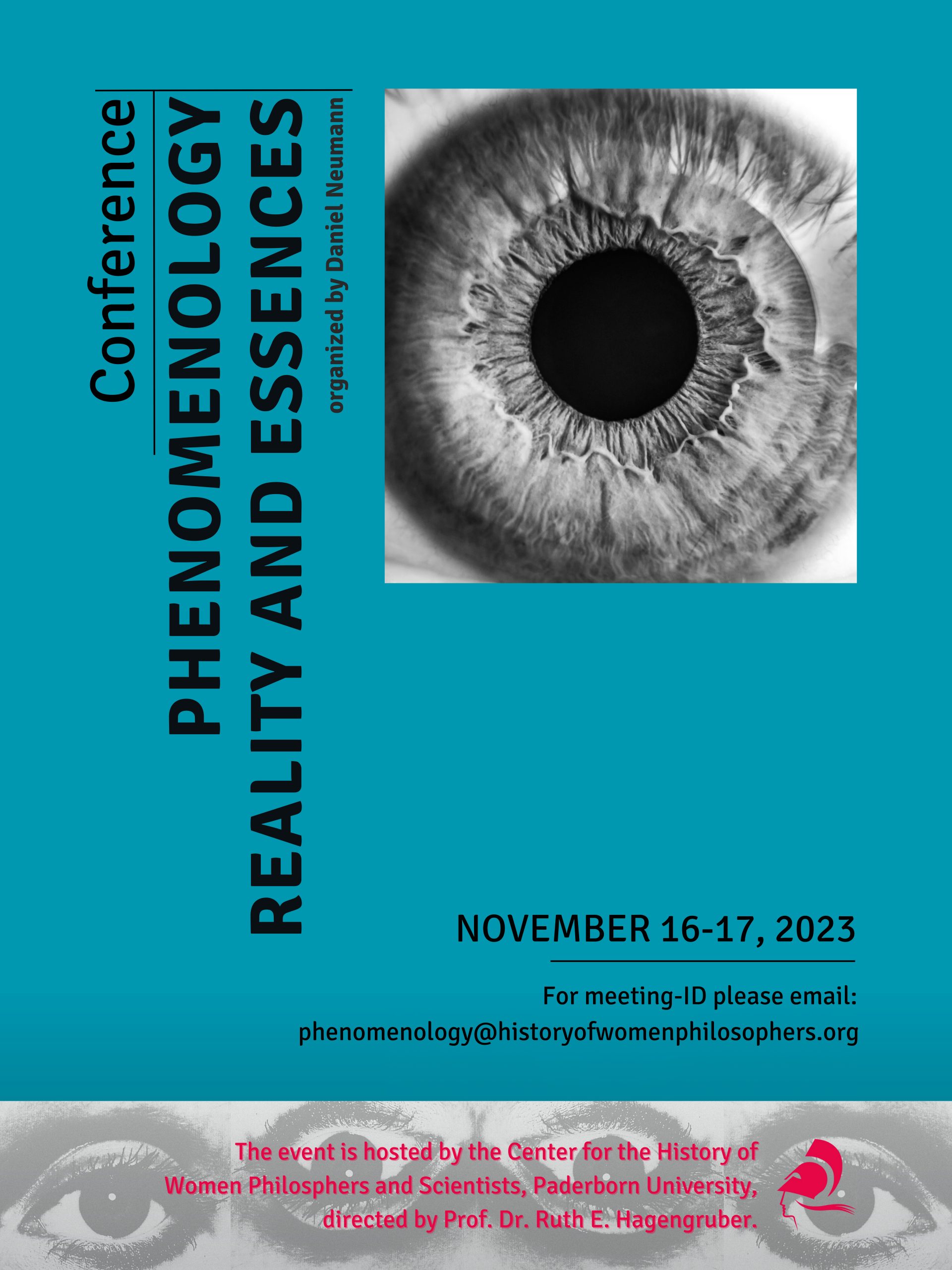 Conference: Phenomenology, Reality and Essences (November 16-17, 2023)
Conference: Phenomenology, Reality and Essences (November 16-17, 2023)
In phenomenology, a standard way to make claims about reality is through the identification of invariant features of and in experience, traditionally called “essences”. Phenomenology as essence intuition, eidetic variation or eidetic reduction raises fundamental questions concerning, among other things, the ontological structure of reality, the status of essences, their normativity, the relationship to empirical sciences and the nature of the phenomenological a priori in general.
This conference has two aims: (1) To establish a fuller picture of the manifold ways in which essence intuition has been understood by phenomenologists historically. How was phenomenology as an eidetic science conceived in and especially outside of Husserl’s writings? (2) To inquire if the idea of essence intuition, broadly construed, might still be considered a viable way of doing phenomenology, especially in light of recent interdisciplinary developments in various fields of phenomenology.
For meeting-ID please email: phenomenology@historyofwomenphilosophers.org
The conference is organized by Daniel Neumann, Center for the History of Women Philosphers and Scientists, Paderborn University.
The event is hosted by the Center for the History of Women Philosphers and Scientists, Paderborn University, directed by Prof. Ruth E. Hagengruber.
Program
All times are CET
Thursday, November 16 (via Zoom)
| 14:50 – 15:00 | Welcome |
| 15:00 – 16:20 | Session 1 – Essence and Aesthetics – Moderation: Victor Portugal Irene Breuer (Bergische Universität Wuppertal) – Essence Intuition in Conrad-Martius’ Aesthetics Adrian Wieczorek (Hochschule Fresenius) – The Language of Essence. The Late Heidegger’s Involving Realism |
| 16:20-16:40 | Coffee Break |
| 16:40-18:00 | Session 2 – The Metaphysics of Intuition – Moderation: Matthew Clemons Denis McManus (University of Southhampton) – Being-in-a-World Fit for Philosophy: Categorial and Eidetic Intuition in Heidegger’s Early Phenomenology Daniel Neumann (Universität Paderborn) – Conrad-Martius on Two Senses of Metaphysics |
| 18:00-19:00 | Lunch/Dinner Break |
| 19:00-21:00 | Session 3 – The Idealism and Realism of Essences – Moderation: Adrian Wieczorek Peter Antich (Dominican University New York) – Wesen in Stein’s Finite and Eternal Being Giulio Marchegiani (Bergische Universität Wuppertal) – On the Meaning of the Anti-Platonism of Essence Intuition in Husserl Matthew Clemons (Stony Brook University) – The Transformation of the A Priori from Kant to Max Scheler |
Friday, November 17 (via Zoom)
| 15:00 – 16:20 | Session 4 – Enduring Eidetics? – Moderation: Giulio Marchegiani Victor Portugal (KU Leuven) – Is Eidetics Enough for ‘Realism’? Bringing Classical and Contemporary Debates Together Sterling Hall (Villanova University) – The Eidetic Reduction Reconsidered: Invariance as a Conceptual Category of Critical Analysis |
| 16:20-16:40 | Coffee Break |
| 16:40-18:00 | Session 5 – Essences and Worldviews – Moderation: Daniel Neumann Eden Elliott (Queen’s University) – Talking About the World: Husserl, Norms, and Human Activity Tom Poljansek (Universität Göttingen) – From Essences to Substances and Back Again – The Metaphysics of the Lifeworld AND Transphenomenal Reality According to Husserl and Millikan |
| 18:00-19:00 | Lunch/Dinner Break |
| 19:00-21:00 | Session 6 – Metaphysics, Language and Religion – Moderation: Tom Poljansek Giuditta Corbella (Università Cattolica del Sacro Cuore) – Roman Ingarden’s Metaphysical Qualities and Their Complex Ontological Status Mary Gennuso (New York City College of Technology) – Jean-Luc Marion and his Responders on God and Religion Rayan Magon (University of Toronto) – Eidetic ‘Seeing’ and the Reconstruction of the Logos of Being: The Phenomenological Method in the Search for the Perfect Language |
You cannot copy content of this page








